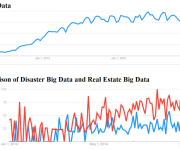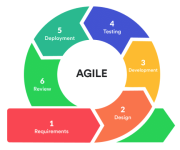Why Data-Focused Companies Still Need Real-World Asset Protection
There are plenty of risks you need to look out for when running a data-focused company. In a recent study, it was reported that over 3,150 data compromises took place in the US last year, impacting approximately 1.35 billion individuals.
From a company perspective, this is perhaps the most damaging thing that could happen to you. Even a single data breach can lead to significant financial losses, not to mention the reputational harm that can ultimately put you out of business.
But, with that being said, data breaches aren’t the only thing you should be concerned about. While it’s likely that you know all of this already, and have already put in the necessary protections to secure your business from cybercriminals, that doesn’t mean your real-world assets are safe.
Physical risks, like fire, theft, or accidents in the workplace, can be just as damaging to your operations and bottom line, and without the necessary precautions, the likelihood of at least one of those risks materialising increases significantly.
So what kind of real-world asset protection do you need, and why is it such a necessity in 2025?
Real-World Asset Protection
Let’s start with your property itself. Although browsing the internet for the best property insurance quotes might seem time-consuming, investing the time and money up front can save you significant headaches and financial loss down the line. Why? Because property insurance is going to be the key to keeping your business running.
Covering everything from your office space and furniture to your equipment and inventory, this type of coverage ensures that if the unexpected happens – whether that’s a fire, theft, or accidental damage – you won’t have to shoulder the full financial burden alone.
Instead, your insurance will help to cover repair or replacement costs, thus minimising downtime and ensuring your operations can keep running smoothly. In essence, it acts as a safety net, protecting the tangible assets that your business depends on every day.
Apart from insurance, you should also consider implementing physical security measures. You’ve got your firewalls and antivirus software for your data, but for the physical space that stores that data, you’ll need locks, alarms, cameras – safeguards that can prevent unauthorised entry and reduce the risk of theft or vandalism.
You’ll also need to keep those systems maintained, with regular inspections to ensure everything is functioning properly and that potential vulnerabilities are addressed before they become problems. This includes testing alarms, updating security software on cameras, checking locks, and replacing any worn-out equipment.
As well as this, it’ll be your job to carry out effective employee training. Educating your team on workplace safety and emergency procedures – combined with insurance and those physical security measures – will be the last piece of the puzzle when it comes to running a well-protected business, and while it might not guarantee you won’t face any incidents, it will reduce the likelihood that such incidents occur.
Why is Real-World Asset Protection Necessary?
As for why all of this is necessary, it’s about ensuring your business can continue operating smoothly even when unexpected events disrupt its operations.
Let’s say you’re running a small data-focused company and a fire damages part of your office. Without proper insurance and physical protections in place, you could be facing a load of costly repairs, which will then lead to lost revenue and operational downtime. With real-world asset protection, however, you have the safety net to help you recover quickly, minimising that financial loss and keeping your business running while you get back on track. It’s not easy to keep up with competitors, of course, and you have to assume that they do have those protections already in place. If the same kind of incident won’t impact them, it shouldn’t impact you. So take the time to find that insurance, install those safeguards, and train your employees effectively enough to respond confidently when something goes wrong. That way, you’ll be well-positioned to continue competing effectively and grow with confidence, rather than insecurity.


























